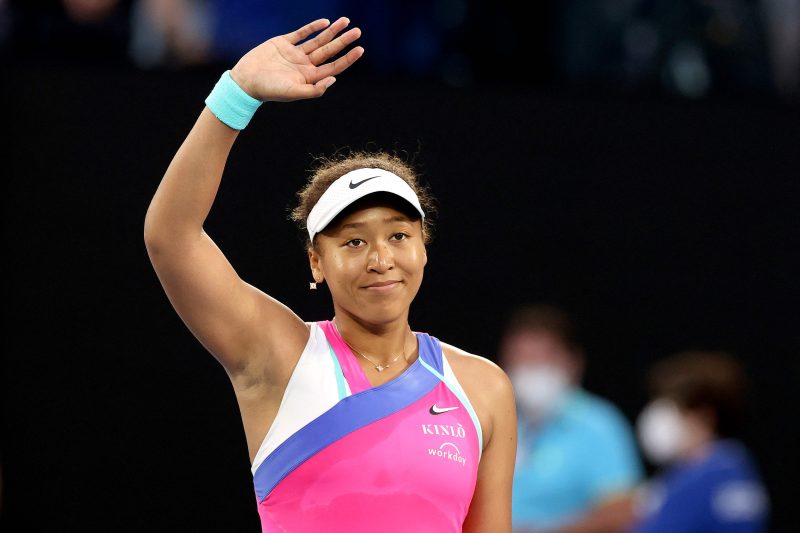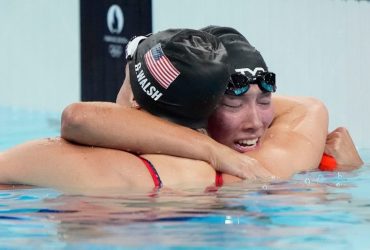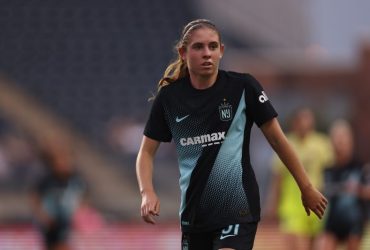For Asian American Pacific Islander Heritage Month, USA TODAY Sports conducted an email interview with tennis star Naomi Osaka. Born in Japan to a Haitian-American father and a Japanese mother, Osaka is a former No. 1 ranked singles player, the first Asian player to do so. She’s a four-time Grand Slam champion and is expected to play in next week’s French Open.
Osaka is also the co-founder of Hana Kuma (which means flower bear in Japanese), an Emmy Award-nominated, story-driven and multicultural creative house. Hana Kuma recently partnered with the LPGA to develop personal brand campaigns for the golfers. She’s also launched a mental health video podcast series called ‘Can’t Wait to Hear from You.’
Since this is Asian American Pacific Islander Heritage Month, wanted to ask how tennis has treated you overall being someone of Asian and Haitian heritage. Were you ever treated with the samekind of hostility, for example, that the Williams sisters were early in their careers because ofyour ethnicity?
I’ve felt that I’ve been welcomed with open arms for the most part. There have been a fewexceptions but overall, I love how I grew up and I’ve felt supported.
Being of Japanese and Haitian heritage is my source of strength. Having diverse life experienceshas made me more tolerant, accepting, and curious. While I’m naturally soft-spoken, a traitinherited from my Japanese side, I believe my fierce competitiveness comes from my Haitianroots.
What would your message be to Asian players who are working towards becomingprofessionals?
I would encourage Asian tennis players to embrace their unique backgrounds and culturesbecause that’s what makes them who they are. I think Asian countries love supporting theirown. Growing up, I looked up to Li Na. There is so much rising talent from countries like Chinaand Japan and there’s no reason that Asian players can’t continue to be dominant figures in thesport.
You have been extremely brave fighting racism, particularly anti-Black racism, and especiallyin 2020, and also since. When you look at America now, have things gotten better since 2020in terms of race? Or worse? Or the same?
From wearing different face masks during the US Open 2020, each honoring a victim of racialinjustice and police brutality, to speaking out on social media, supporting equality organizations,and joining protests, it’s my way of raising awareness and honoring Black lives that were lost.I think that my generation is very outspoken about demanding change. People are more willingto speak out and stand up for justice. While we’ve taken some steps forward, there’s still a lot ofwork to be done. I’m committed to using my platform to make a difference and stand up againstracism in any way possible.
How would you describe your tennis game right now in one word?
Assertive
What are you most proud of with your game right now?
I would say I’m most proud of my tenacity. I knew that coming back from pregnancy that itwould be a long and challenging road, but I’m trusting the process, staying focused, and taking itone day at a time.
Naomi Osaka gave a brilliant answer for who is winning the Kendrick Lamar-Drake rap beef
What inspired you to create ‘Can’t Wait To Hear From You?‘
I’m someone who gets lost in my own thoughts. I thought it would be cool to create a podcastwhere we get a glimpse into the minds of leaders in various industries and fields. I’ve beenincredibly lucky to receive so much love and support from my close circle and my fans.My hope is for this video podcast series to encourage people to have open discussionssurrounding mental health and self-appreciation while feeling less shame.
What are the biggest mental health challenges facing professional athletes like yourself?
Tennis is such a grueling sport both physically and mentally. I always say that great tennisplayers must have a short memory. Whether you just lost a point or an entire match, you haveto be able to reset quickly and move on. During the season, you’re playing almost every week sothere’s no time to dwell on the previous event. Being able to reset mentally and not over thinkthe past is a huge aspect of tennis, no matter what level you’re competing at.
What is the next big project for your production company?
We’re developing some amazing content and experiences across sports, fashion, and femaleempowerment. Keep an eye out for Hana Kuma at Wimbledon—we’re gearing up to make amajor impact and shake things up in a big way.
The LPGA partnership: What inspired it and how has it gone?
Throughout my career, I’ve received so much love and support from my fellow female athletes.With Hana Kuma, I want to pay it forward by helping empower and champion the LPGA players,providing the tools and resources necessary for them to invest in themselves and build a futurebeyond their sport. Together, we can continue to uplift and inspire the next generation offemale athletes.
We’ve teamed up with eight incredible global athletes and hosted an in-person workshop forthe wider LPGA player base, inspiring them to think ‘beyond the green’ when it comes tobuilding their brands.





